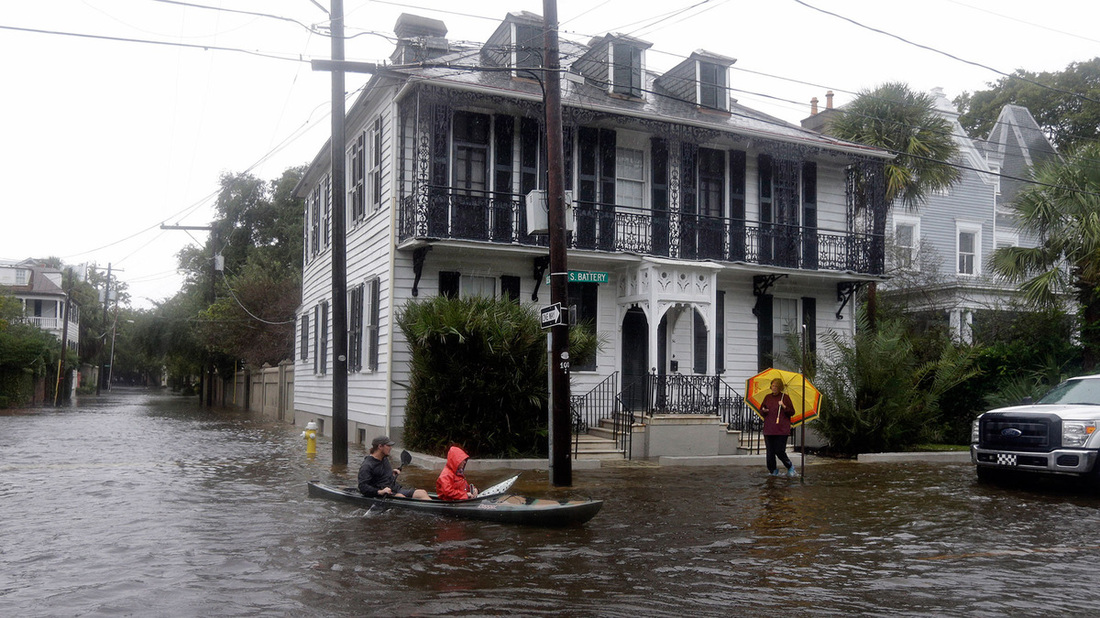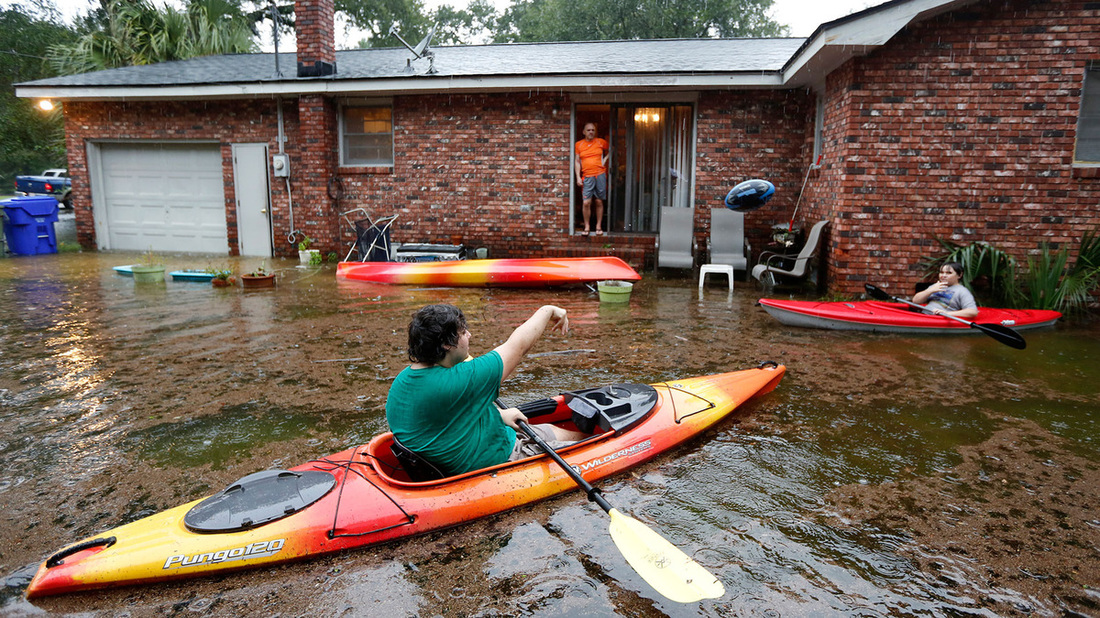Except.
He kind of missed some of the point of this whole science thing. The motto of the Royal Society is "Nullius in Verba," or, roughly, "don't take anybody's word for anything," demonstrating the society's commitment to experimentation and data rather than authority and pronouncement.
Which makes Lawson's interpretation of the "freshes" of the Santee and its resulting flooding somewhat charming. We all saw the rain come down in the last week -- we saw the radar and the photographs and so we understood. Lawson, in 1701, got to the mouth of the Santee River, found it with a significant current and in flood, and didn't know what caused the flooding. Evidently they didn't get 20 inches of rain, or surely he'd have mentioned that. Just the same, lack of evidence didn't stop him from surmising that the Santee flooded -- every year at this time, he was told -- because, well, because it snowed up in the mountains (the sources of the Santee do in fact stretch all the way to the Blue Ridge), so that meant that the snow built up without help of the salty sea to melt it, and then when a warm breeze came in it all melted at once and came rushing down the river.
In January.
It's not Lawson's greatest mansplain ever (he imagines at one point that flowing over marble is what makes Carolina water blue: "The Springs that feed these Rivulets, lick up some Potions of the Stones in the Brooks; which Dissolution gives this Tincture, as appears in all, or most of the Rivers and Brooks of this Country." Carolina Blue jokes to come). Just the same, it's a pretty good mansplain and he deserves credit. Good description of the flood, not so good on its causes. Here, anyhow, are Lawson's own words: "The next Morning very early, we ferry'd over a Creek that runs near the House; and, after an Hour's Travel in the Woods, we came to the River-side, where we stay'd for the Indian, who was our Guide, and was gone round by Water in a small Canoe, to meet us at that Place we rested at. He came after a small Time, and ferry'd us in that little Vessel over Santee River 4 Miles, and 84 Miles in the Woods, which the over-flowing of the Freshes, which then came down, had made a perfect Sea of, there running an incredible Current in the River, which had cast our small Craft, and us, away, had we not had this Sewee Indian with us; who are excellent Artists in managing these small Canoes.
"Santee River, at this Time, (from the usual Depth of Water) was risen perpendicular 36 Foot, always making a Breach from her Banks, about this Season of the Year: The general Opinion of the Cause thereof, is suppos'd to proceed from the overflowing of fresh Water-Lakes that lie near the Head of this River, and others, upon the same Continent: But my Opinion is, that these vast Inundations proceed from the great and repeated Quantities of Snow that falls upon the Mountains, which lie at so great a Distance from the Sea, therefore they have no Help of being dissolv'd by those saline, piercing Particles, as other adjacent Parts near the Ocean receive; and therefore lies and increases to a vast Bulk, until some mild Southerly Breezes coming on a sudden, continue to unlock these frozen Bodies, congeal'd by the North-West Wind, dissipating them in Liquids; and coming down with Impetuosity, fills those Branches that feed these Rivers, and causes this strange Deluge, which oft-times lays under Water the adjacent Parts on both Sides this Current, for several Miles distant from her Banks; tho' theFrench and Indians affir'm'd to me, they never knew such an extraordinary Flood there before."


 RSS Feed
RSS Feed